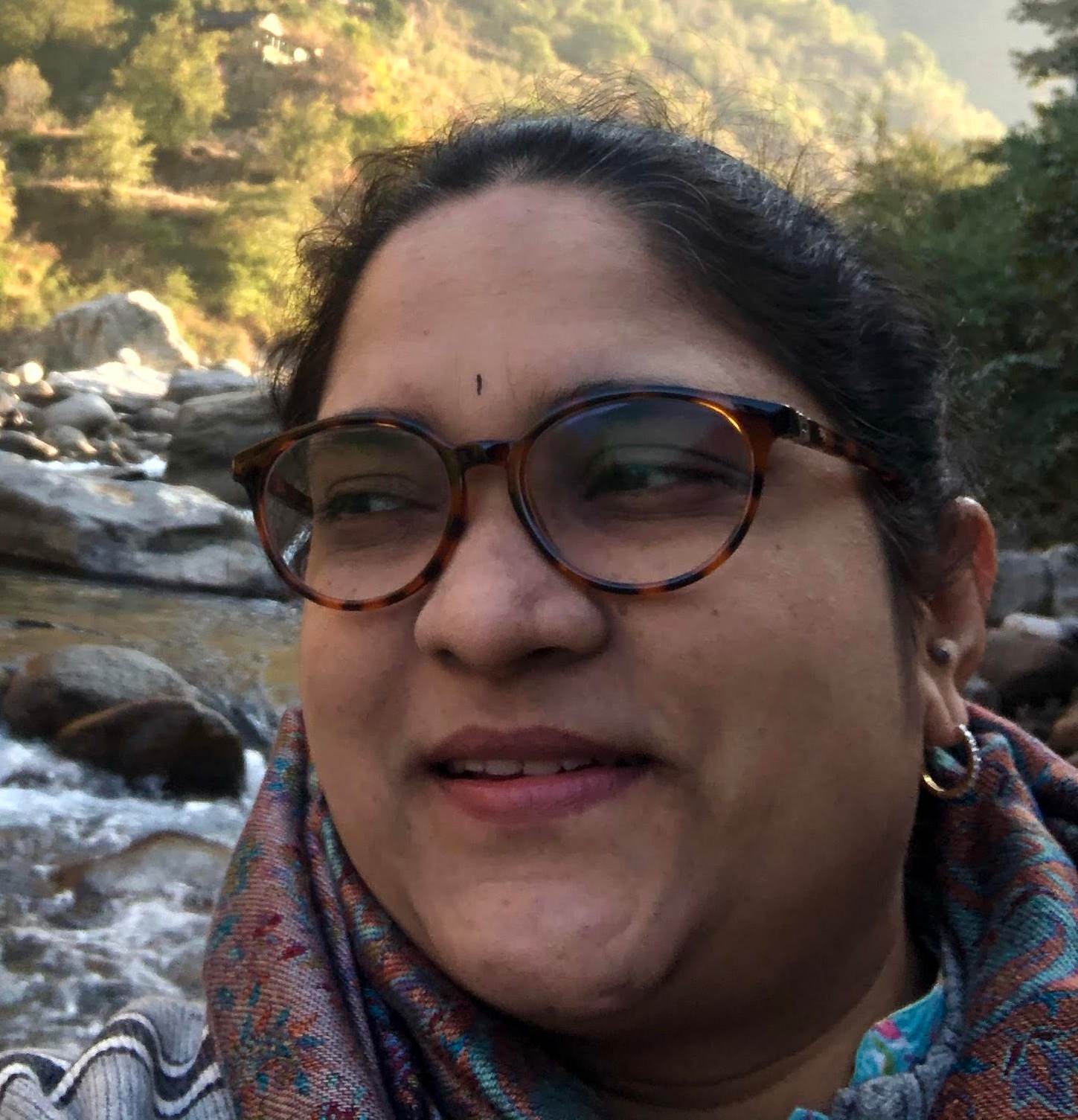Exploring PG diploma courses in law for students, working professionals
R. Radhika | February 22, 2021 | 09:14 AM IST | 6 mins read
Law schools offer a range of one-year diploma courses for both lawyers, other working professionals and students. Several cover emerging areas of concern such as bioterrorism, GIS and remote-sensing.

NEW DELHI: Nived Tayal, a legal counsel for a multinational company, has been able to communicate the intricate details of environmental laws to his clients because of the postgraduate diploma in environment and policy he is pursuing at National Law University, Delhi.
 "I have five years of experience in corporate law but now, through this course, I have a holistic view of environmental laws that has enabled me to contribute more efficiently,” said Tayal. “In corporations, there are multiple players to whom you need to explain the importance of certain rules and acts in simple terms. This can be done only when you have a broader view of the law.”
"I have five years of experience in corporate law but now, through this course, I have a holistic view of environmental laws that has enabled me to contribute more efficiently,” said Tayal. “In corporations, there are multiple players to whom you need to explain the importance of certain rules and acts in simple terms. This can be done only when you have a broader view of the law.”
To advance their careers and expand their knowledge, law graduates and full-time employees like Tayal are looking at short-term law courses. Postgraduate diploma courses in law, or PGD, are emerging as the most convenient option for not just law graduates but also for working professionals in various fields that directly or indirectly deal with laws. As opposed to the bachelor’s degrees, there is a broader spectrum of interdisciplinary law courses open for graduates of any stream.
Most of these courses run for one year with a focus on one sector and the laws related to it. Since the PGD courses are open to working professionals, the majority of these have been tailor-made to suit their requirements.
Short duration, weekend classes, lenient attendance requirements, online discussions and self-paced learning are some of the features of these diploma courses.
Open to all
Apart from a postgraduate diploma (PGD) in environmental laws and policy, the World Wildlife Fund in collaboration with NLU, Delhi, offers two other niche courses, PGD in urban environmental management and law and a PGD in tourism law. However, neither of these courses is restricted to law graduates.
“Even in the corporate sector, job roles require you to know about environmental compliances, clearances and environmental impact assessment. There are guidelines for everything. The course has been designed in such a manner that even a person with no law background is able to interpret the complex laws of the field,” said Moulika Arabhi, legal head of Centre for Environmental Law at WWF-India.
To reach out to the maximum people possible, the courses are being offered in online and distance learning modes. Upon completion, students earn an NLU diploma, but the course is designed and conducted by the CEL-WWF.
While working on plastic waste management at the United Nations Development Programme (UNDP), Prashant Lingam realised the need to explore the legal aspects of civic administration and urban management “I was looking to enhance my knowledge while working. I was looking for a course that touches on the basics of environmental law and urban planning. The challenges of civic authorities captured my interest,” said Lingam. He enrolled for the PGD urban environmental management and law in July last year.
 The courses offered at NLU, Delhi may be best suited for working professionals, but they are open to fresh graduates as well. “Even if we prefer working professionals, we do not deny an opportunity to well-deserving freshers or fresh graduates. Some students have amazing clarity on why they want to do the course,” said Arabhi. Fresh graduates are required to furnish a statement of purpose and qualify a personal interview to be considered for admission.
The courses offered at NLU, Delhi may be best suited for working professionals, but they are open to fresh graduates as well. “Even if we prefer working professionals, we do not deny an opportunity to well-deserving freshers or fresh graduates. Some students have amazing clarity on why they want to do the course,” said Arabhi. Fresh graduates are required to furnish a statement of purpose and qualify a personal interview to be considered for admission.
Tailor-made courses
While the basic eligibility criteria are broad and flexible, the courses themselves are designed to suit very specific student groups.
For instance, the diploma courses in air, space, telecom, GIS and remote sensing offered at NALSAR University of Law, Hyderabad, have been specially designed to meet the needs of serving space and telecom professionals, scientists and aerospace engineers. It is also helpful for students pursuing aerospace engineering and management and law graduates desiring specialization in aerospace law.
Similarly, the PGD in tourism and environmental law offered at NLU, Delhi caters to present and future tourism service providers. The PG diploma programme also aims to assist learners in developing a better understanding of the tourism industry, especially ecotourism.
The courses related to medical jurisprudence, medical law and ethics offered by the National University of Advanced Legal Studies, Kochi have been designed for medical professionals and those in the healthcare industry.
Interdisciplinary PGD law courses
While one set of courses dive deep into a specific field of law, another set helps break boundaries between different disciplines, allowing students to draw links and connections between different academic disciplines and professions. Students learning in this way can apply the knowledge gained in one discipline to a different one, enhancing knowledge itself and its application.
In the field of medicine and allied sciences, several colleges offer PGD courses on medical jurisprudence, medical law and ethics, forensic sciences, bioterrorism and bio-forensic laws. The coronavirus outbreak in 2020, and the now-refuted theory that the pandemic was an act of bioterrorism, further alerted institutions to the need for the newer, interdisciplinary branches
of knowledge.
“Interdisciplinary courses are the need of the hour. We need more trained people who can deal in areas of bio-forensic laws but there are very few who know and take up these specialisations,” said Shamkant Rajaram Dhadlikar, head of the law department, Kavayitri Bahinabai Chaudhari North Maharashtra University, Jalgaon. The university offers a one-year PGD diploma in bio-forensic law and bioterrorism law and medical jurisprudence and toxicology.
Bio-forensic law and bioterrorism law deal with the legal rights, privileges, duties and obligations of forensic experts as well as victims of injuries caused by weapons and chemicals during warfare, terrorism or similar violent activities. Students are trained to examine and prepare forensic expert reports or certificates in accordance with the law of land. The one year course includes practical training of students in forensic labs.
In November, a parliamentary committee submitted a report on COVID-19 management in which it said that the country requires robust mechanisms and laws to control “biological agents”.
“The adverse effects of COVID-19 pandemic have taught the lesson on the importance of controlling biological agents and the need for strategic partnerships among different nations. The committee, therefore, feels that the present time is the most appropriate for the government to formulate effective laws to counter bioterrorism,” the committee said in its report.
The COVID-19 pandemic also brought into focus the relevance and utility of aviation laws. Jamia Millia Islamia University offers a one-year PGD in air and space law and aviation law; NALSAR Hyderabad offers one on air transport management.
This field also opens up career avenues in various government organisations such as the Directorate General of Civil Aviation, Airports Authority of India and various defence organisations.
The niche course also has a specific job market. “Students can expect employment as airline managers, safety and security managers, operations managers, international relations manager (bilateral and traffic rights), legal and financial consultants,” the official NALSAR admission notice states.
Postgraduate Diploma Courses in Law | |
College/Institute | Course |
National Law University, Delhi | Urban Environmental Management and Law; Environment Law Policy; Tourism Environment Law; |
Maharashtra National Law University, Nagpur | Energy Laws and Policy |
The West Bengal National University of Juridical Sciences, Kolkata | Air and Space Law; Nuclear Law; |
Jamia Millia Islamia, New Delhi | Air and Space Law |
National Academy of Legal Studies and Research, Hyderabad | Aviation Law and Air Transport Management; GIS and Remote Sensing Laws |
National University of Advanced Legal Studies, Kochi | Medical Law and Ethics; Banking Law; Cyber Law; Media Law Ethics; Insurance Law |
Indian Law Institute, New Delhi | Alternative Dispute Resolution |
University of Mumbai Law Academy, Mumbai | Clinical Legal Education Advocacy Skills |
Shantaram Potdukhe College of Law, Chandrapur | Human Resource Development Law; Panchayat Raj Administration |
University College of Law, Mohanlal Sukhadia University, Udaipur | Criminology and Socioeconomic Crimes Law |
KCE Society's SS Maniyar Law College, Jalgaon | Forensic Science; Bio Forensic Law |
Kavayitri Bahinabai Chaudhari North Maharashtra University, Jalgaon (Also known as: NMU) | Bioforensic Law and Bioterrorism Law; Medical Jurisprudence and Toxicology |
Lajpat Rai Law College, Sambalpur | Industrial Relationship and Personnel Management |
Pt Ravishankar Shukla University, Raipur | Criminology and Forensic Science |
Government Institute of Forensic Science, Nagpur | Forensic Science and Related Law |
Kerala University of Fisheries and Ocean Studies, Kochi | Maritime Law |
University of North Bengal, Siliguri | Environmental Law |
SGN Khalsa Law PG College, Sri Ganganagar | Legal and Forensic Science |
Central University of Kerala, Kasaragod | NRI Law |
Raffles University, Neemrana | Criminology and Police Science |
Career Point University, Kota | Criminology and Socio-Economics Crimes |
Dr Ambedkar Government Law College, Puducherry | French Law |
Saurashtra University, Rajkot | Legal Process Outsourcing |
Manikchand Pahade Law College, Aurangabad | Medical Jurisprudence and Forensic Law |
Government Institute of Forensic Science, Aurangabad | Digital and Cyber Forensics and Related Laws |
DP Vipra Law College, Bilaspur | Criminology and Law of Crimes |
Write to us at news@careers360.com
Follow us for the latest education news on colleges and universities, admission, courses, exams, research, education policies, study abroad and more..
To get in touch, write to us at news@careers360.com.
Next Story
]What law students, scholars feel about BCI scrapping the one-year LLM
While the National Law Universities (NLUs) and many private universities followed the one-year LLM programme, most of the states and central universities offered the two-year LLM programme. The first is set to be abolished from the forthcoming academic year. However, the BCI notification has been challenged in the Supreme Court by a student.
Pritha Roy Choudhury